In Canada, a subpoena is a powerful legal tool designed to ensure the participation of individuals in legal proceedings.
Whether it is to provide testimony, produce evidence, or assist in resolving disputes, subpoenas play a critical role in upholding the integrity of the justice system.
Understanding what a subpoena entails, how it differs from other legal documents like a summons, and the consequences of failing to comply can help individuals navigate their legal obligations more effectively!
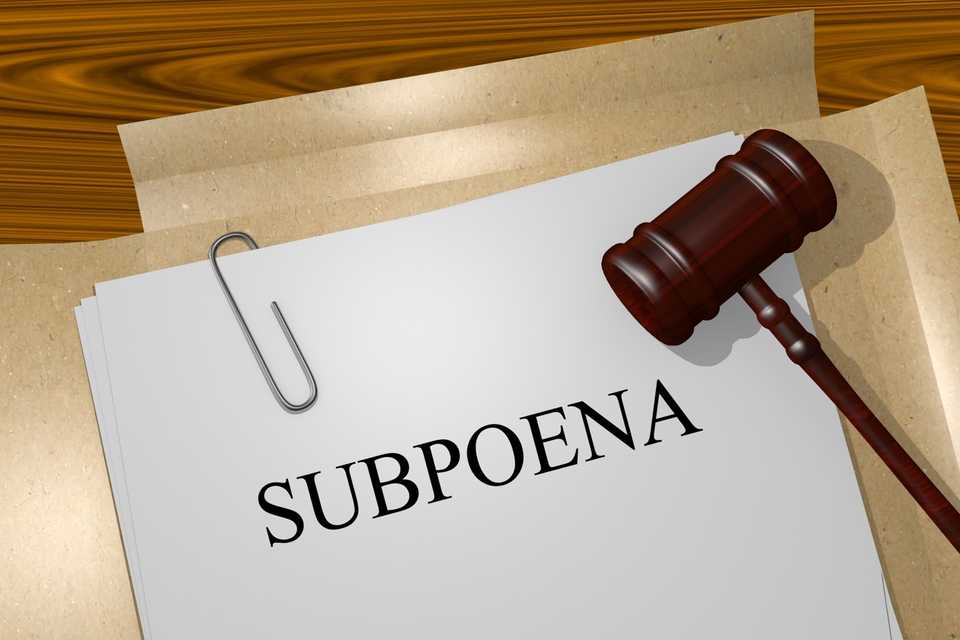
| In this article, JuriGo will delve into every aspect of subpoenas in Canada, offering a comprehensive guide to their purpose, implications, and requirements! |
|---|
What Is a Subpoena?
A subpoena is a formal legal document issued by a court, a lawyer, or another authorized party to compel an individual's presence in a legal matter. Its primary purpose is to ensure that witnesses or parties with relevant information contribute to the resolution of a case, either by providing testimony or submitting critical evidence.
Purpose and Function:
Subpoenas ensure the fair administration of justice by compelling the disclosure of crucial information during court proceedings. These legal documents are used in criminal, civil, and administrative cases and apply to various legal contexts, such as trials, depositions, and arbitration hearings.
A subpoena clearly outlines the recipient's obligations, whether it requires appearing in court, testifying, or producing specific documents or records. By ensuring that vital evidence and testimony are available, subpoenas play a critical role in maintaining transparency and integrity in the judicial process.
What Are the Key Components of a Subpoena?
The content of a subpoena can vary depending on the type of trial and the province, but it typically includes these essential details:
- Nature of the Request: Clearly outlines whether the individual is required to testify, produce documents, or fulfill both obligations.
- Time and Location: Specifies the exact date, time, and place the recipient must appear.
- Rights and Obligations: Explains the recipient's rights, such as the possibility of reimbursement for expenses, and their legal duties under the subpoena.
- Consequences of Non-Compliance: Highlights the potential penalties, such as fines or legal action, for failing to comply.
By detailing these components, a subpoena ensures clarity and compliance while maintaining the integrity of judicial proceedings.
Types of Subpoenas:
Subpoenas are legal tools designed to ensure that courts have access to the information and testimony needed for fair proceedings. They generally fall into two categories:
| Type of Subpoena | Explanation |
|---|---|
| Subpoena ad testificandum | This type requires an individual to appear and testify under oath in court or at a legal proceeding. This type of subpoena is typically issued when a witness's knowledge, observations, or expert opinion is considered vital to resolving a legal matter. |
| Subpoena duces tecum | This type of subpoena is a legal order requiring the recipient to produce specific documents, records, or tangible evidence considered essential to a legal proceeding. Unlike a subpoena ad testificandum, which focuses on oral testimony, this subpoena targets physical evidence that can support claims, resolve disputes, or offer critical context. It specifies the exact items to be provided and outlines the deadline and method of submission, whether the materials must be brought to court or delivered to a designated party in advance. |
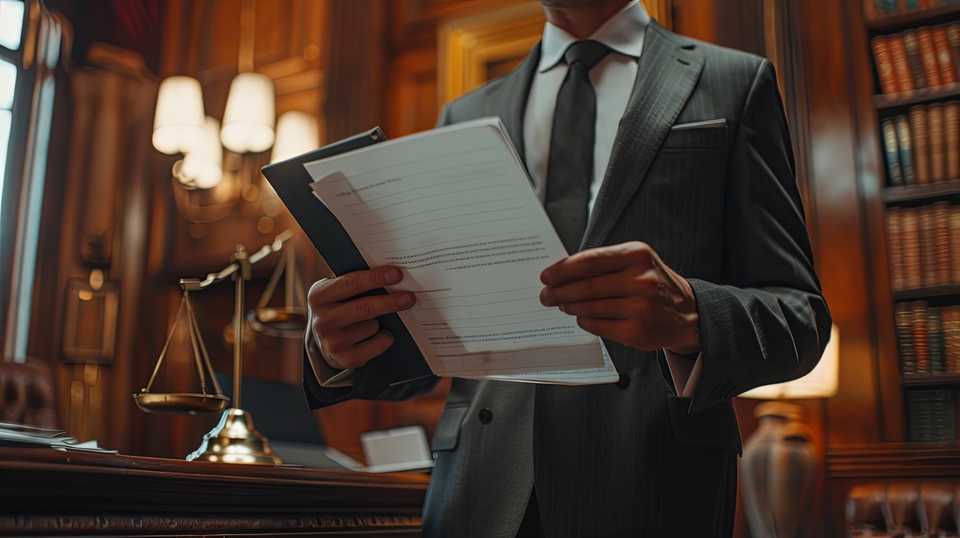
Each type serves a distinct purpose, with one focusing on oral testimony and the other on physical evidence. Together, they help the justice system access essential information, ensuring thorough and equitable decision-making in legal matters.
Does a Subpoena Have to Follow a Specific Legal Framework?
Yes, subpoenas in Canada must adhere to a well-defined legal framework to ensure their validity and enforceability. Each province or territory sets its own guidelines regarding the issuance and execution of subpoenas, but certain fundamental principles remain consistent across the country.
First, the subpoena must comply with the formal requirements established by provincial or territorial justice authorities. It must clearly outline the purpose of the subpoena, the recipient's obligations, and the potential consequences of non-compliance. For example, it must specify whether the individual is required to testify, produce documents, or both.
Timing is also crucial. In many jurisdictions, subpoenas must be served well in advance to allow recipients sufficient time to prepare. In Quebec, for instance, subpoenas must generally be issued at least 10 days before the required appearance, unless urgency justifies a shorter notice period with judicial approval.
What is the Difference Between a Subpoena and a Summons?
Although subpoenas and summonses are often used interchangeably in casual conversation, they serve distinct purposes in the Canadian legal system.
- Subpoena: A subpoena compels an individual to participate in a legal proceeding, either by testifying as a witness or providing evidence. It is primarily directed at third parties who are not directly involved in the dispute but possess relevant information.
- Summons: A summons, on the other hand, is a legal document issued to inform an individual that they are being sued or that they must appear in court to answer a charge. Summonses are typically directed at parties directly involved in the legal dispute, such as defendants in a civil case or accused individuals in a criminal matter.
Key Differences Between Summons and Subpoenas:
| Difference | Explanation |
|---|---|
| Purpose | A subpoena is issued to compel an individual to provide evidence, either by testifying or producing documents, relevant to a legal case. In contrast, a summons serves to notify an individual of their involvement in a case, such as being called to court as a defendant or a party in a lawsuit. |
| Recipients | Subpoenas are typically directed at witnesses, experts, or custodians of records who possess relevant information or evidence. Summonses, on the other hand, are sent to the parties involved in the legal action, such as defendants or plaintiffs. |
| Legal obligation | Both subpoenas and summonses impose serious legal obligations on their recipients. Failing to comply with a subpoena may result in contempt of court charges, fines, or even arrest. Similarly, ignoring a summons can lead to default judgment, fines, or additional legal consequences. The implications are particularly severe when a summons is issued in a criminal matter, as a defendant’s failure to respond can result in more significant penalties, including arrest warrants. |
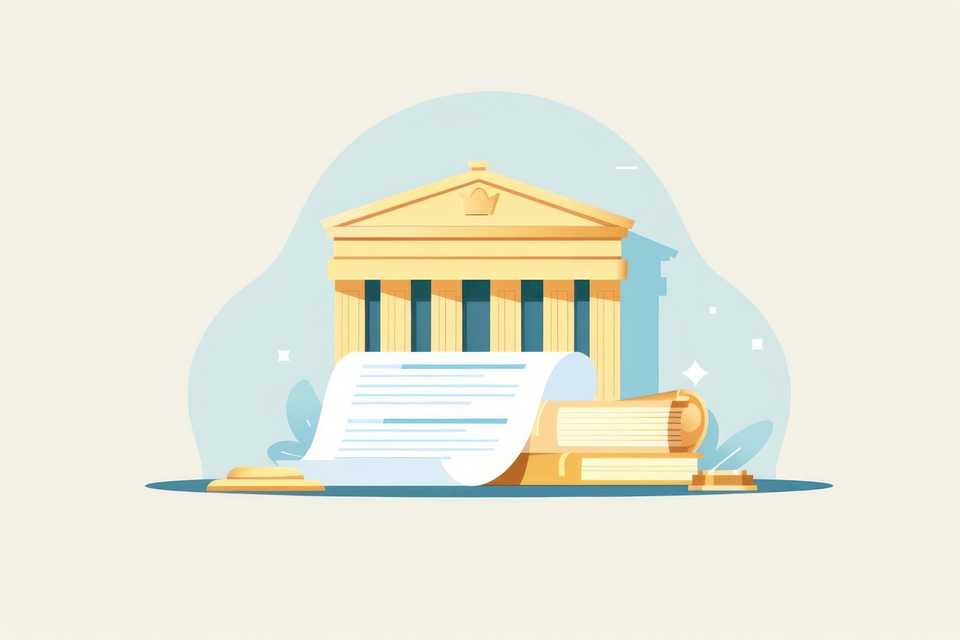
The Essentials You Need to Know When You Are a Witness in a Legal Matter:
Whether you have received a subpoena to testify as a regular witness or an expert witness, your role in a legal proceeding is crucial. It is important to understand several key aspects to ensure compliance with legal requirements and to be aware of your responsibilities.
Role of a Normal Witness
A regular witness who is called to testify about facts they have personally observed or experienced. This means your testimony is limited to what you directly saw, heard, or felt at the time of the event in question. Your testimony must be based on first-hand knowledge, and you are prohibited from sharing information you heard from others, which is known as hearsay.
Hearsay is not allowed because it undermines the reliability of the evidence and can lead to inaccuracies. The court values testimony that reflects the actual experiences and perceptions of the witness, ensuring the facts presented are as accurate and credible as possible.
| For example, if a witness says, "I heard someone say the defendant was at the scene," but the person who said that is not present in the courtroom, that would be considered hearsay. |
|---|
Responsibilities of a Witness
As a witness, you are required to testify honestly and impartially. Your duty is to tell the truth to the best of your ability, without bias or embellishment. It is important to understand that failing to testify truthfully can have serious consequences, including being charged with perjury or contempt of court.
The court relies on witnesses to help establish the facts of a case, and any attempt to mislead or withhold information can damage the integrity of the proceedings.
Expert Witnesses
In complex cases, such as those involving technical, scientific, or medical issues, an expert witness may be called upon. An expert witness provides specialized knowledge or opinions to assist the court in understanding evidence that requires specific expertise.
For instance, an expert witness might analyze and interpret technical data, offer professional opinions based on their expertise, or submit reports outlining their findings. It is crucial that expert witnesses remain impartial and base their testimony on sound, factual analysis. Their role is to educate the court on complex matters, not to advocate for one party over the other.
- Maintaining Professional Integrity:
For professionals, such as doctors, who are asked to testify as expert witnesses, confidentiality is an important consideration. A subpoena does not automatically authorize the release of confidential information, such as patient records.
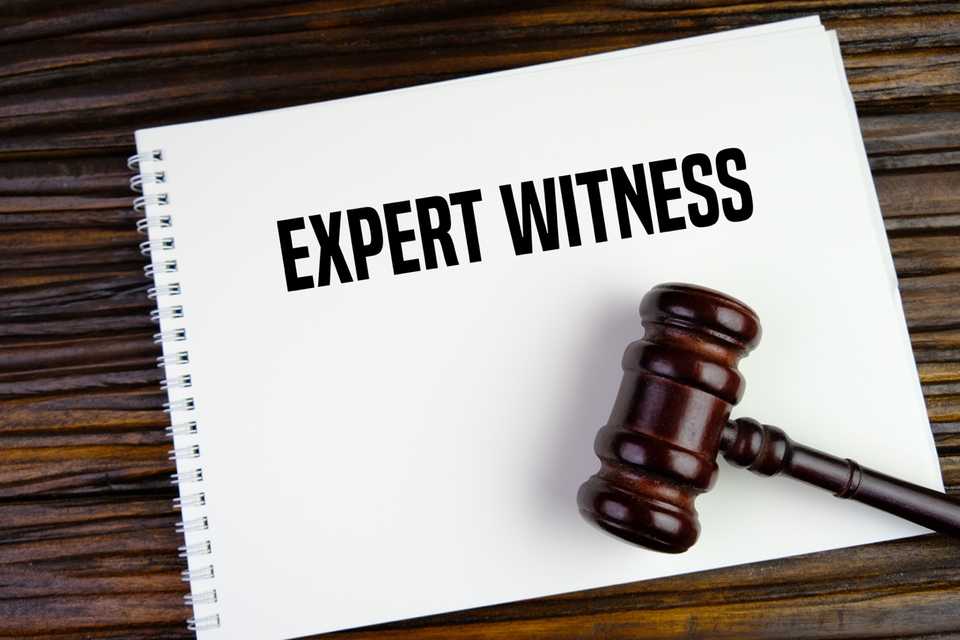
Unless explicitly required by law or with patient consent, physicians and other professionals must protect the confidentiality of their clients. If subpoenaed, you can only provide records or discuss sensitive information if you have received the patient’s written consent or a specific court order directing you to do so.
- Additional Considerations:
If you receive a subpoena from a tribunal other than a court, such as a medical regulatory authority or a human rights commission, make sure to read the subpoena carefully to understand what is required.
These subpoenas may have different rules regarding what documents you need to produce or whether you can provide evidence without appearing in person. Contacting the relevant authorities for advice can help ensure compliance and protect your professional responsibilities.
Can I Receive Compensation as a Witness?
Yes, if you received a subpoena and are required to be a witness in court, you are entitled to financial compensation. This typically covers time lost, travel, meals, and accommodation. The party summoning the witness is responsible for providing an advance to cover these expenses.
The amounts for accommodations and compensation vary by province or territory, but here is an example of what a witness is entitled to receive in Quebec:
- Transportation: Witnesses can claim the cost of public transit or, if travelling by car, $0.635 per kilometre plus parking expenses. Taxes, such as GST and QST, as well as any accommodation tax, are reimbursable when applicable.
- Meals: Reimbursement for meal expenses is capped at:
- $14.70 for breakfast
- $20.20 for lunch
- $30.50 for dinner
These amounts include taxes and tips.
- Accommodation: If overnight stays are necessary due to court appearances spanning multiple days, a hotel allowance is provided, ranging from $101 to $177 per night. Taxes, including GST and QST, are also reimbursed. The calculation is based on the most cost-effective option available.
- Indemnity for Loss of Time: Witnesses are compensated for time spent in court at the following rates:
- $90 per full day,
- $45 for five hours or less
These measures ensure that witnesses are not financially burdened while fulfilling their legal obligations. If you are summoned, confirm the specific compensation rules in your region to understand your entitlements fully.
What to Do If You Can’t Attend?
If you are subpoenaed but cannot attend, it's essential to address the matter promptly. Contact the person, lawyer, or court officer who issued the subpoena and explain your situation. Provide valid reasons and supporting evidence, such as medical certificates or travel documentation, to justify your absence.
In some cases, you may be permitted to submit reports or records instead of appearing in person, but this requires proper consent or court authorization. Ignoring a subpoena is not an option, as it carries legal consequences. Acting proactively ensures you comply with legal obligations while addressing your inability to attend.
What are the Consequences of Failing to Comply with a Subpoena?
Failing to comply with a subpoena is a serious legal offence that can have significant consequences, potentially obstructing the judicial process and undermining the integrity of the court system. Ignoring a subpoena is not only a breach of legal obligations but can lead to a variety of penalties that can severely impact the individual involved.
Below are some of the key legal consequences for non-compliance:
| Consequence | Explanation |
|---|---|
| Contempt of court | One of the most serious consequences of failing to comply with a subpoena is being charged with contempt of court. This occurs when an individual required by law to attend or remain present for the purpose of giving evidence fails, without a lawful excuse, to do so. Contempt of court is classified as a summary offence, carrying significant penalties. A person found guilty may face a fine not exceeding $100, imprisonment for a term not exceeding 90 days, or both. Courts take such violations seriously, as they hinder the administration of justice and the judicial process. |
| Warrants for arrest | In cases where an individual’s failure to comply with a subpoena is particularly egregious, a judge may issue a warrant for their arrest. This is particularly common when the individual has ignored previous warnings or has been uncooperative. An arrest warrant ensures that the person is forcibly brought before the court to explain their failure to comply with the subpoena. Arrests for non-compliance serve as a powerful deterrent against obstructing justice and underscore the importance of following legal procedures. |
| Impact on legal proceedings | Even if the impact on legal proceedings is not a direct consequence for the person who fails to comply with the subpoena, it is important to mention that non-compliance can have serious implications for the case. For example, if a key witness fails to appear to provide subpoenaed testimony, it can weaken one side’s argument and potentially harm their case. The absence of crucial evidence or testimony may lead to a loss of credibility or even an unfavourable judgment. Similarly, failing to produce important documents or records can place one party at a significant disadvantage. In some instances, the court may even draw negative inferences from the failure to comply, assuming that the non-compliance is intentional and detrimental to the case. |
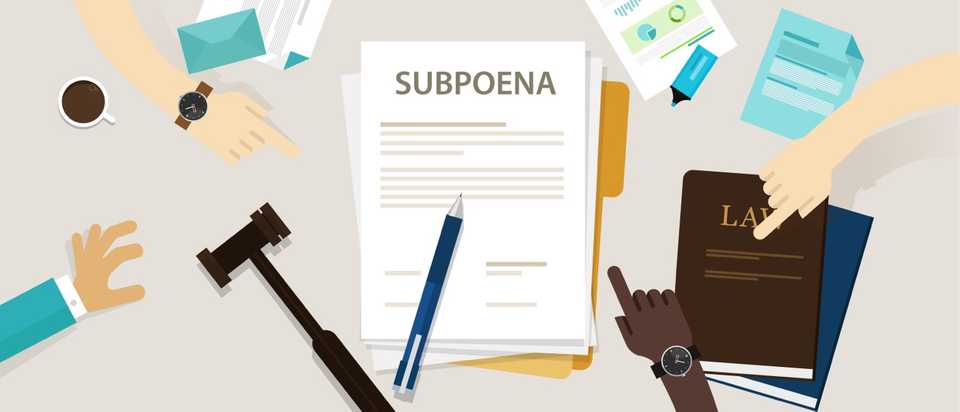
Steps to Avoid Consequences
To avoid the legal penalties associated with non-compliance, individuals should take specific steps to ensure that they meet the requirements of a subpoena:
- Carefully Review the Subpoena: It’s crucial to read the subpoena carefully to understand what is being asked. Whether it requires testimony, document submission, or both, individuals must fully comprehend their obligations and the consequences of non-compliance.
- Seek Legal Advice: If the subpoena is unclear or if there are valid concerns regarding compliance, individuals should consult a lawyer. Legal professionals can guide recipients through the process and help them understand their rights and obligations.
- Communicate with the Issuing Authority: If compliance is not feasible due to valid reasons, such as health issues or conflicting schedules, individuals should contact the authority issuing the subpoena. Courts may be willing to reschedule or grant extensions under certain circumstances, especially if the reason for non-compliance is legitimate.
Complying with a subpoena is not just a legal obligation but a civic duty that ensures the justice system functions efficiently and fairly. The consequences of ignoring a subpoena can be severe, ranging from contempt charges to arrest warrants and damage to the legal case.
To avoid these repercussions, individuals must take their responsibilities seriously, carefully read subpoenas, seek legal advice when necessary, and communicate with the appropriate authorities if they face obstacles in complying.
Received a Subpoena? JuriGo Can Help You Find a Lawyer!
Subpoenas are a key part of Canada’s legal system, ensuring that crucial evidence and testimony are available for court proceedings. Whether you are called to testify or provide documents, it is essential to understand the legal implications. Ignoring a subpoena can result in serious consequences, highlighting the importance of compliance.
Seeking legal advice is a wise step to protect your rights and fulfill your obligations. A lawyer can explain the process, clarify your responsibilities, and help you prepare effectively. They also ensure you avoid errors and understand how to navigate the legal system confidently.
If you have received a subpoena, consulting a lawyer early can provide personalized guidance, helping you meet your obligations while safeguarding your rights. Use JuriGo to connect with a skilled lawyer and ensure you are ready to handle this legal requirement.
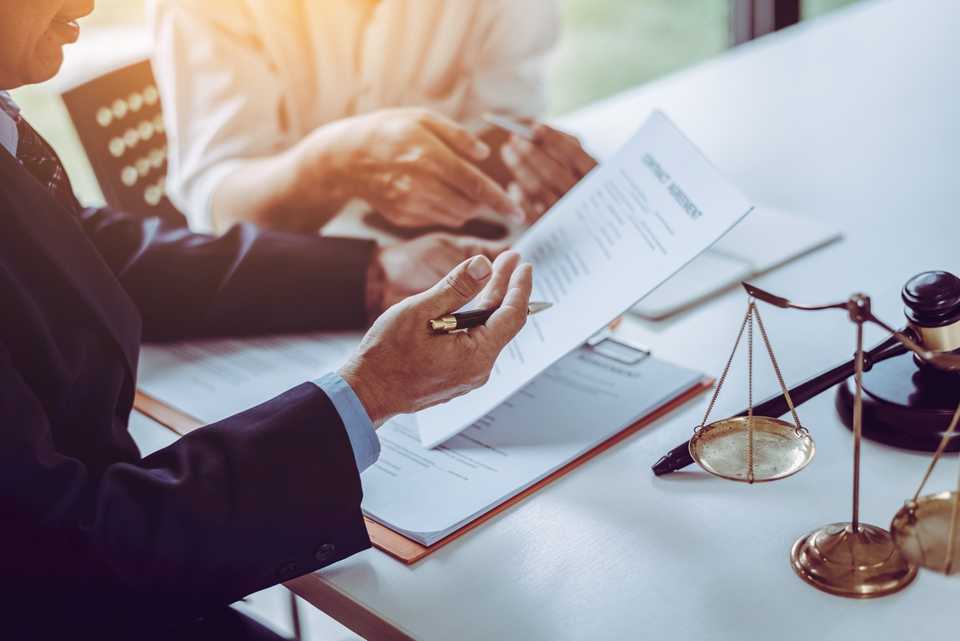
Have you received a subpoena and are looking for a lawyer? You have come to the right place. JuriGo is here to help you.
Simply fill out the form at the bottom of the page and we will connect you with a lawyer nearby. It is completely free with no obligation, so do not wait and get the help you need today.
